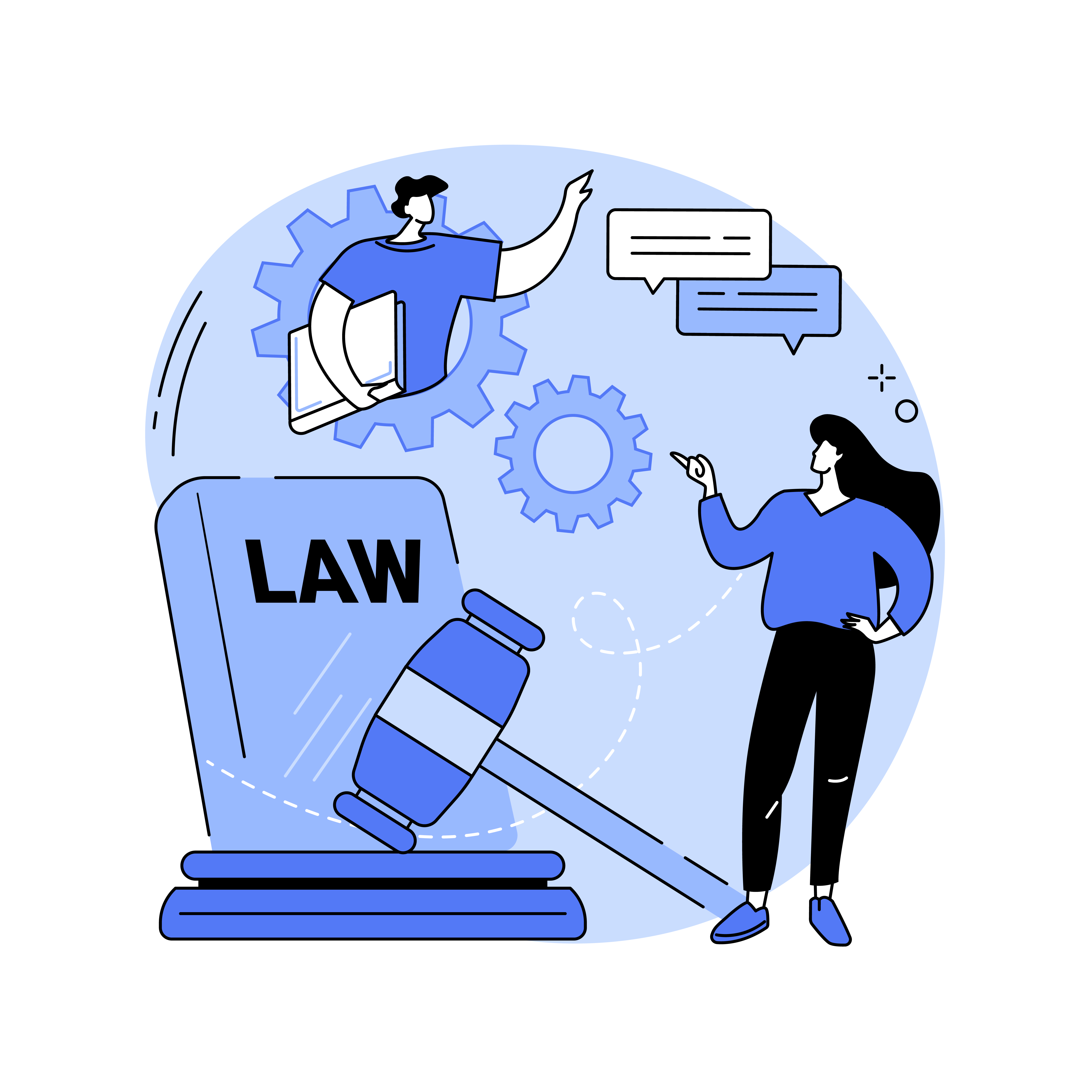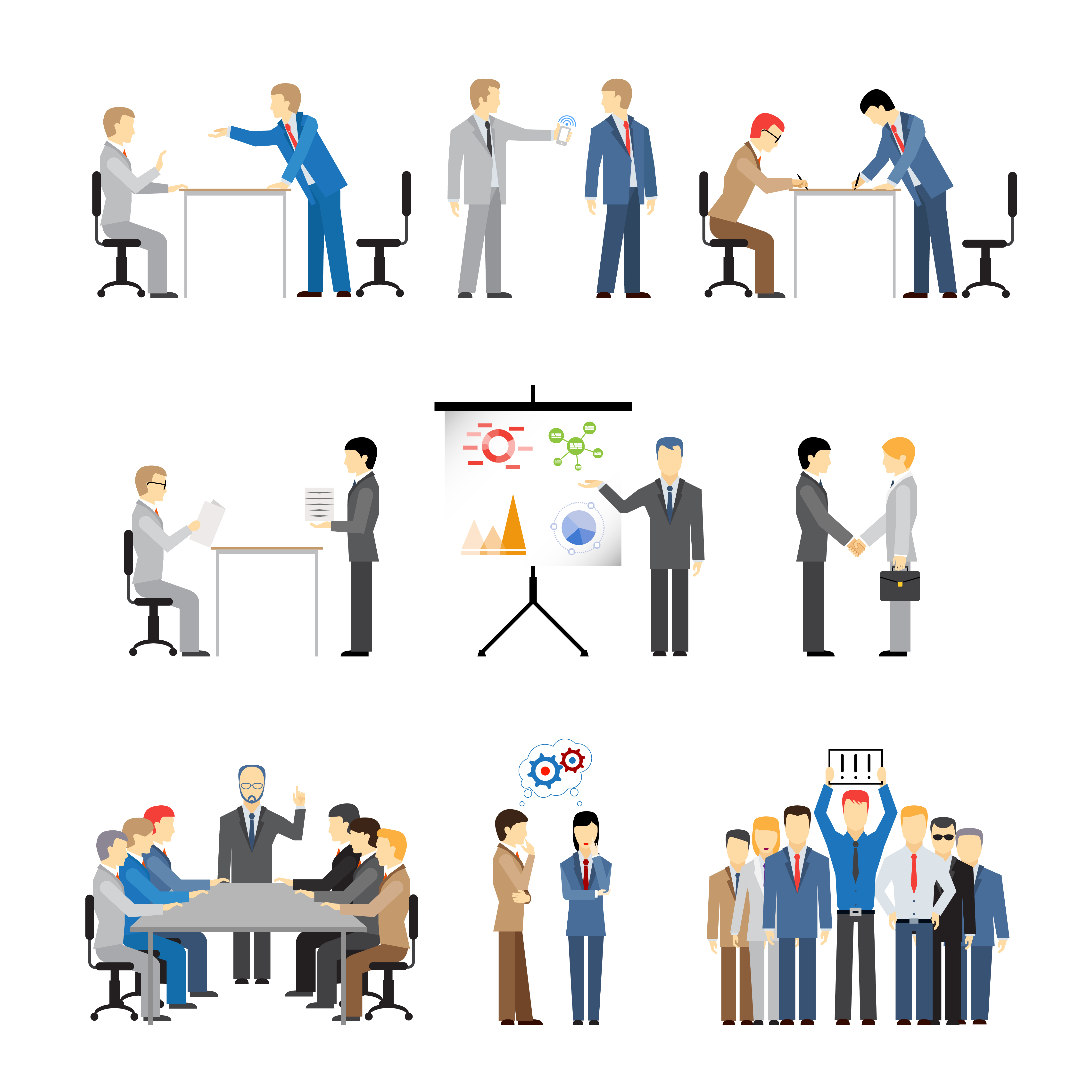
In today’s world, almost every sector needs technology to stay afloat, and law firms are no exception. CRM for law firms is reshaping the world of legal professionals by streamlining their operations, enhancing client relationships, and helping them stay competitive in an ever-evolving legal landscape.
Legal CRM is also providing an efficient way for lawyers to manage documents, schedule appointments and take care of billing systems as well. Keeping in mind the complexities of running a law firm and the benefits that legal CRM can provide, this blog has been created.
This blog pinpoints the benefits of CRM software for law firms, its features, and answers generic FAQs to help you understand whether or not your law firm needs CRM. But first, let’s take a step back to understand what a CRM is for law firms and what makes legal CRM software different from a generic CRM or a legacy CRM.
What is CRM for Law Firms?
Customer Relationship Management (CRM) for law firms is a strategic approach to managing and nurturing relationships with clients, optimizing interactions, and enhancing overall client satisfaction. In the legal realm, where personalized client engagement is paramount, CRM tools and methodologies are tailored to meet the specific needs of law practices.
CRM for law firms involves the implementation of software solutions designed to streamline client communication, case management, and document organization. It can enable legal professionals to track client interactions, manage case details efficiently, and stay informed about key deadlines. By centralizing client data, CRM systems also empower law firms to deliver personalized services, anticipate client needs, and foster long-term relationships.
The benefits of CRM for law firms extend beyond mere organization; it enhances collaboration among legal teams, ensuring a unified approach to client service. Through automation, and streamlining of repetitive tasks, CRM for law firms can help you to seamlessly focus on high-value activities. Additionally, CRM tools often provide analytical insights, enabling law firms to make data-driven decisions and optimize their business processes.
Thus, CRM for law firms is a holistic solution that goes beyond client management—it’s a strategic tool that can align your legal practices with modern business dynamics, fostering client-centric approaches and ultimately contributing to the success and growth of your firm.
Difference Between Legal CRM and Generic CRM

Litigation support abstract concept vector illustration. Attorney assistant, litigation lawyer, legal professional, document and data management, forensic accounting, consulting abstract metaphor.
| Area of Difference | Generic CRM | Modern CRM for Law Firms |
|---|---|---|
| Workflows |
|
|
| Client Profiles |
|
|
| Document Management |
|
|
| Integrations |
|
|
Now that you clearly understand what CRM for legal firms is, and what is its difference from a generic CRM, let’s explore how a legal CRM can help law firms optimize their practices.
Benefits of CRM for Law Firms
In the legal landscape, where client relationships are pivotal, implementing CRM brings about a plethora of benefits. So, let’s explore the advantages of CRM for law firms, to understand how it enhances client interactions, improves efficiency, and contributes to overall business success:
Enhanced Client Relationships
One of the primary benefits of CRM for law firms is the ability to cultivate and strengthen client relationships. These systems play a pivotal role in enhancing client relationships by centralizing and organizing crucial client information. These platforms also enable efficient management of client interactions, ensuring timely follow-ups, and fostering personalized communication.
By tracking client preferences, case histories, and communication history, you can tailor your law firm’s services to meet individual needs, ultimately building trust and satisfaction. Besides, CRM systems also streamline workflow processes, which can improve internal communication and collaboration among legal professionals.
Additionally, by automating routine tasks and reminders, these systems can help your law firm to stay proactive, while ensuring timely responses to client inquiries and deadlines. In overall, CRM for law firms can serve as a strategic tool to enhance client engagement, improve service delivery, and foster long-term client loyalty toward your law firm.
Efficient communication is the lifeblood of any successful law firm, and an efficient CRM for law firms can help you with every one of your communication issues. CRM systems facilitate streamlined communication by consolidating emails, calls, and documents in a centralized platform. This can not only reduce the risk of miscommunication but also ensure that all your team members are on the same page regarding client interactions.
Besides, with real-time updates and notifications, CRM for law firms can enable you to send prompt responses to client inquiries, fostering a responsive and client-centric approach.
Law firms deal with a multitude of cases simultaneously, each with its own set of complexities and deadlines. But with a legal CRM, you need not worry about case management, as CRM systems offer robust case management functionalities, allowing lawyers to organize and prioritize tasks seamlessly. From tracking court dates to managing document workflows, CRM streamlines the entire case lifecycle, reducing the likelihood of missed deadlines and ensuring that cases progress smoothly.
Business Development and Marketing
CRM systems empower law firms to implement targeted and effective business development and marketing strategies. By analyzing client data and preferences, you can tailor your marketing efforts to specific demographics, which eventually increases your likelihood of attracting the right clientele. Moreover, CRM tools can automate your marketing campaigns, saving you time and resources while ensuring a consistent and professional brand image.
The legal profession is bound by stringent data protection and confidentiality regulations and a legal CRM ensures that your law firm can abide by data security and compliance at all times. As CRM systems provide a secure environment for storing sensitive client information, it becomes easy for law firms to abide by compliance with legal and ethical standards.
Besides, by providing you with robust access controls and encryption features, legal CRM can help you mitigate the risks associated with data breaches and unauthorized access, thereby safeguarding both client trust and your firm’s reputation.
Time is a precious commodity in the legal realm, and CRM systems contribute significantly to time and resource efficiency. By automating your workflows and document management features, legal CRM streamlines administrative tasks, and allows lawyers to focus on more complex legal work. Additionally, CRM tools eliminate the need for manual data entry and redundant processes, reducing the likelihood of errors and improving overall operational efficiency.
Analytics and Performance Monitoring
Legal CRM systems provide valuable analytics and reporting tools that can enable your law firm to monitor its performance and identify areas for improvement. By analyzing client interactions, case outcomes, and staff productivity, you can make data-driven decisions to optimize your operations. This insight can not only enhance your strategic planning but foster a culture of continuous improvement within your organization as well.
Client Retention and Referral Opportunities
A satisfied client is more likely to become a repeat client and a source of valuable referrals. CRM systems help law firms nurture client relationships, ensuring that clients feel valued throughout and after their legal representation. By keeping track of client preferences and milestones, you can proactively engage with clients, and increase the likelihood of repeat business and referrals, which are crucial for sustained growth.
Grow Your Client Portfolio, Profits, and Reputation
CRM for law firms can empower you to strategically grow your law firm’s client portfolio, profits, and reputation by helping you optimize client acquisition and retention processes. These platforms also facilitate targeted marketing efforts, allowing firms to identify and pursue potential clients more effectively.
By analyzing client data, you can identify profitable practice areas and tailor services to client needs, increasing overall profitability. CRM systems also streamline communication, which can enable you to send prompt responses to inquiries and enhance client satisfaction, leading to positive word-of-mouth referrals.
The organized and centralized data provided by CRM systems can enhance reputation management, showcasing your firm’s commitment to client relationships and professionalism. As a result, by utilizing legal CRM, you can build a robust client portfolio, increase profits through strategic insights, and bolster your reputation as a client-focused and efficient legal entity.
Empower Your Team to Work From Anywhere
CRM for law firms plays a vital role in empowering teams to work from anywhere by providing a centralized and accessible platform for collaboration and information management. These systems can enable your legal professionals to access case details, client histories, and communications remotely, fostering seamless collaboration regardless of physical location.
The cloud-based nature of many CRM solutions ensures real-time updates, allowing team members to stay informed about client interactions and case developments from any device with internet connectivity. This flexibility not only enhances teamwork but can enable your lawyers to serve clients efficiently while working remotely or on the go.
CRM for law firms thus becomes a key enabler of remote work, offering the necessary tools for effective communication, collaboration, and information sharing, ultimately contributing to increased productivity and responsiveness in a virtual work environment.
In conclusion, the implementation of CRM systems offers a myriad of benefits for law firms. From enhancing client relationships to improving operational efficiency, these tools contribute significantly to the overall success of legal practices. In an increasingly competitive and dynamic legal landscape, leveraging CRM technology is not just an option but a strategic imperative for law firms aiming to stay ahead, build lasting client connections, and thrive in the complex world of legal practice.
Key Features of CRM for Law Firms
A legal CRM system serves as an indispensable tool for law firms, offering a suite of unique features tailored to the specific needs and challenges of the legal industry. The multifaceted nature of legal work requires a CRM solution that goes beyond generic business CRM functionalities, addressing the intricacies of case management, client communication, and compliance. So, let’s look into the distinctive features that set legal CRMs apart from their generic counterparts.
At the core of a legal CRM is robust case management functionality. This feature enables law firms to organize and streamline information related to each case, including client details, case history, court dates, and associated documents. The ability to centralize case data can foster collaboration among legal professionals in your law firm and ensure a systematic approach to handling complex legal matters.
Legal CRM systems incorporate sophisticated conflict-checking mechanisms to prevent conflicts of interest. Before taking on new clients or cases, the CRM cross-references existing case data to identify potential conflicts, safeguarding the integrity of the legal representation and avoiding ethical dilemmas.
Efficient document management is a hallmark of legal CRM systems. These platforms provide a centralized repository for legal documents, contracts, pleadings, and correspondence. This can not only ensure easy retrieval of information but also enhance collaboration within your firm by providing a shared space for document storage and collaboration.
Accurate time tracking and billing are critical for law firms to maintain financial viability. Legal CRMs include features that can allow your attorneys to record billable hours seamlessly. Moreover, these systems automate the billing process, generating invoices based on recorded time and expenses, thereby reducing administrative overhead and minimizing billing errors.
Legal CRM systems facilitate secure and transparent communication between law firms and their clients. Through client portals or secure messaging features, your attorneys can share case updates, documents, and important messages with clients. This can enhance client engagement and satisfaction while maintaining the confidentiality and security required in legal matters.
Deadline and Calendar Management
Meeting deadlines and staying on top of court dates is paramount in the legal profession. Legal CRMs include robust calendar and deadline management features. These features can not only remind your legal professionals of impending deadlines but also help in coordinating tasks of your law firm and activities to ensure timely and compliant actions.
Integration with Legal Research Tools
To streamline legal research processes, legal CRMs often integrate with legal research databases and tools. This CRM integration can allow your legal professionals to access relevant legal information directly from the CRM, reducing the time spent on external research platforms and promoting efficiency in legal analysis.
Legal CRM systems incorporate task and workflow automation to optimize routine processes. Automation features can help in automating your firm’s repetitive tasks, such as document generation, email communications, and data entry. This can not only increase your operational efficiency but also reduce the risk of errors associated with manual tasks.

Client Relationship Management
Building and maintaining strong client relationships is crucial for the success of any law firm. Legal CRMs include client relationship management features that can enable your firm to manage client contacts, track interactions, and maintain a comprehensive history of client communications. This feature can also enhance client satisfaction and loyalty.
Compliance and Security Features
Given the sensitive nature of legal information, legal CRMs prioritize compliance and security. These systems adhere to industry-specific compliance standards and implement robust security measures to safeguard client data, ensuring confidentiality and trust.
The unique features of a legal CRM collectively empower law firms to navigate the complexities of the legal landscape. From case management to client communication, these specialized features contribute to increased efficiency, enhanced collaboration, and improved client relationships, making legal CRM systems indispensable tools for modern legal practices.
FAQs about CRM for Law Firms
As legal professionals embark on the journey of adopting CRM, it’s natural to have questions. This section addresses frequently asked questions, providing detailed answers to common concerns.
CRM system or CRM for law firms is a sophisticated software program that supports legal practitioners or law firms to manage, organize, and leverage their lead or client data. Its primary purpose is to enable client-lawyer relationships by ensuring that everyone in your law firm has immediate access to critical information at all times.
Law firm CRM software provides its users with a wealth of cutting-edge IT tools that eventually help them in optimizing workflows and the handling of customer data. For a law firm like yours, legal CRM is just like a digital Swiss army knife that can help you convert more prospects and grow your legal practice at the same time.
The common functionality of CRM for law firms includes:
- A visual, drag-and-drop sales pipeline
- No-code user interface
- Client profiles
- Streamlined workflows
- Marketing automation
- Omnichannel communication
- Customer and sales analytics
- Document management
As a law firm, you must invest in CRM systems because this type of software offers an efficient way to manage customer data, close leads and manage non-billable tasks as well. Besides, it makes it easy to manage documents and keep in touch with prospects, which leaves you with more time to focus on what matters – offering a superior experience to your leads and clients.
Another vital but often overlooked benefit of CRM for law firms is that it helps you present a unified face of your law firm to your clients. By centralizing customer data, legal CRM saves your practice from embarrassing communication mishaps and the cost that it can have on your reputation.
EQUP – Most Efficient and Affordable CRM for Law Firm’s
 EQUP stands out as the premier choice for law firms, offering an unparalleled blend of efficiency and affordability in the current CRM market. Its unique features cater specifically to the nuanced needs of legal professionals, making it a standout solution. Here are the features of of EQUP that makes it an excellent choice for your law firm:
EQUP stands out as the premier choice for law firms, offering an unparalleled blend of efficiency and affordability in the current CRM market. Its unique features cater specifically to the nuanced needs of legal professionals, making it a standout solution. Here are the features of of EQUP that makes it an excellent choice for your law firm:
First and foremost, EQUP streamlines case management with its intuitive interface, allowing law firms to effortlessly organize and access critical client information. The platform’s robust automation capabilities reduce manual workload, enhancing overall efficiency and freeing up valuable time for legal practitioners to focus on core tasks.
Full Customization Through API
Another standout feature of EQUP is its unparalleled level of customization, facilitated through a robust Application Programming Interface (API). This allows law firms to mold the CRM system to align perfectly with their specific workflows, ensuring seamless integration with existing processes. From client data management to case tracking, the ability to customize ensures that EQUP is a truly bespoke solution for each law firm.
Integration is often a stumbling block when adopting new software. However, with EQUP you need not worry about this, as it stands above the competition with its user-friendly integration capabilities. So, whether it’s syncing with existing databases or seamlessly connecting with other essential tools in your law firm’s tech stack, EQUP can make integration a breeze. This in return will ensure minimal disruption to your existing workflows and a swift transition to a more efficient CRM system.
As a law firm you must be aware by now that communication is the lifeblood of any law firm, and with EQUP you can communicate seamlessly. EQUP understand the need for communication for law firms and takes it a step further by incorporating in-app calling features directly within the CRM interface. This eliminates the need for juggling multiple applications and provides a centralized hub for all of your client-related communication. Meaning, with a click, all your legal professionals can make calls, record conversations, and ensure that all client interactions are well-documented.
Managing cases through various stages is a hallmark of legal practice, and EQUP simplifies this with an intuitive drag-and-drop pipeline. This feature allows legal professionals to visualize and manage their caseload effortlessly. From client onboarding to case resolution, the drag-and-drop pipeline ensures a transparent and efficient progression, giving law firms like yours unprecedented control over organizational workflows.
Building and maintaining client relationships extend beyond case management, and by recognizing this, EQUP incorporates robust email marketing tools into its CRM suite. These features can enable you to leverage targeted newsletters to automated follow-ups, to nurture client relationships and keep your legal services at the forefront of clients’ minds. Besides, this is also the feature that transforms EQUP from a mere case management tool into a comprehensive client engagement platform for law firms.
EQUP empowers law firms with data-driven insights through its advanced analytics capabilities. Legal professionals can delve into key metrics, track case progress, and identify areas for improvement. By harnessing the power of data, you can also gain a competitive edge, as it can enable you to make informed decisions that drive success.
EQUP also recognizes that legal professionals are not necessarily IT experts, for which it has created a user-friendly, no-code interface. This means that you can customize and optimize the CRM system even if you lack and your law practitioners lack extensive coding knowledge. This means EQUP can be accessed by all your team members, which can foster widespread adoption and ensure that every member of your firm can leverage this free CRM to its full potential.
Furthermore, EQUP incorporates advanced security measures, safeguarding sensitive legal data and maintaining compliance with industry regulations. This commitment to data integrity enhances client trust, positioning EQUP as a reliable choice for your law firm in this ever-evolving legal landscape.
In terms of affordability, EQUP stands as a cost-effective solution without compromising on quality. Its pricing model is tailored to suit law firms of all sizes, ensuring accessibility for both large practices and solo practitioners. This commitment to affordability is complemented by regular updates and a user-friendly design, guaranteeing a seamless user experience.
In essence, EQUP stands as the epitome of efficiency and affordability, making it the optimal CRM solution for law firms like yours, seeking a powerful yet economical tool to elevate their practice management.

Wrapping Up
CRM for law firms is a transformative tool that goes beyond traditional client management. Its benefits extend to efficient case management, powerful marketing capabilities, and enhanced communication tools. As law firms and legal professionals navigate the complexities of the legal landscape, CRM for law firms emerges strategically, contributing to improved client relationships and overall operational excellence.
By understanding the key features, and benefits, and addressing common questions, as a law firm you can choose the best CRM software for your law firm. As the legal industry embraces technology, CRM stands as a beacon, guiding law firms toward a future of increased efficiency, client satisfaction, and sustained success.